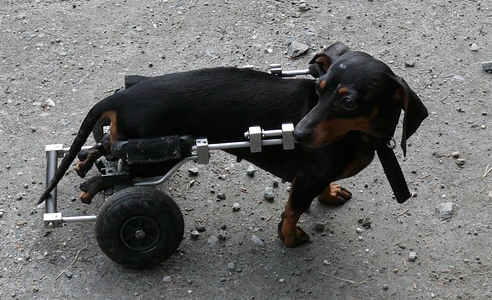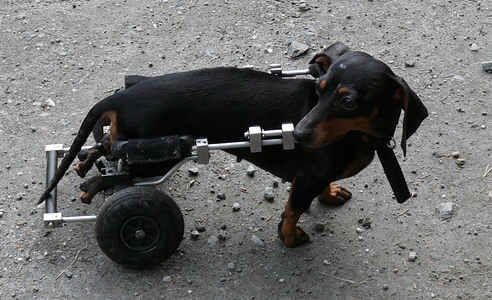How to use despite / in spite of (english grammar)

Language Focus: Despite & In spite of
Word Form: Prepositions
English Level: Intermediate/Advanced
Firstly, the word despite (without ‘in’ or ‘of’) has the same meaning as in spite of. Both words are used for contrast.
Here is a common sentence mistake made by students:
- Despite he was hungry, John did not eat. (
Incorrect
)
Why is this incorrect? Because the words despite and in spite of are prepositions, not subordinating conjunctions. This means that after these words, you only need a noun. You cannot put a clause that has a subject and a verb.
Usage #1: Despite / In spite of + noun , main clause
- Despite his
hunger
, John did not eat. (
Correct
= ‘hunger’ is a
noun
)
If you want to use a subject (“he”) and a verb (“was”), then use a subordinating conjunction such as although/though/even though/while. These words are followed by clauses.
- Although
he
was
hungry, John did not eat. (
Correct
)
- Even though
she
had
a broken arm, she played the game. (
Correct
)
- Though
the water
was
cold, we enjoyed swimming. (
Correct
)
You can use despite or in spite of (they have the same meaning) to express the above ideas. However, you should only use nouns.
- In spite of his
hunger
, John did not eat (
Correct
)
- Despite her
broken arm
, she played the game. (
Correct
)
- In spite of the
temperature of the water
, we enjoyed swimming. (
Correct
)
All of these examples follow this format:
[Despite] / [In spite of] + noun , main clause
This is the standard way to use both in spite of and despite.
Usage #2: Despite / In spite of + Gerund
You can always change a verb (e.g. run) into a noun by changing the verb into the ~ing form (running). A verb in ~ing form that is used as a noun is called a gerund. Because gerunds as treated as nouns, they can come after despite or in spite of. For example:
- Despite he had no time, he stopped to help.
> Incorrect because ‘he had’ begins is a clause.
- Despite
having no time
, he stopped to help.
> Correct because ‘having no time’ becomes a gerund phrase. It is not a clause because we have removed the subject ‘he’. Because a gerund is treated as a noun, this follows the despite + noun format.
Here are some more examples of gerund phrases:
- In spite of we arrived
arriving late
, we found good seats.
- Despite he was
being angry
, he let us in.
- In spite of we ran
running out gas
, we arrived on time.
- Despite he didn’t order
not ordering our food correctly
, the waiter seemed like a good person.
Usage #3: Despite / In spite of + the fact (that) + clause
A clause has a subject and a verb. There are two clauses in the below sentence:
- Although
I
was
sick,
I
took
the test.
The first clause ‘Although I was sick’ is a subordinate clause (or dependent clause) which attaches to the main clause ‘I took the test’. As we have learned, we do not use despite or in spite of with a clause.
However, there is a trick. If you use ‘the fact that’, then you can attach a clause after despite or in spite of:
- Despite I was sick, I took the test. (
Incorrect
)
- Despite
the fact that
I was sick, I took the test. (
Correct
)
- In spite of she didn’t like me, she gave me a present. (
Incorrect
)
- In spite of
the fact that
she didn’t like me, she gave me a present. (
Correct
)
This usage is valid, but a little long. In my opinion, if you want to use a clause, then it’s easier to use a subordinating conjunction like although/though/even though:
- Even though she didn’t like me, she said hello.

Summary: Despite / In spite of
- Despite and in spite of have the same meaning, (but we do not use ‘in’ or ‘of’ with despite).
- The most common usage is this: Despite / In spite of + noun, main clause
- You can use verbs after despite / in spite of if you change them into a gerund (~ing)
- You can use a clause after despite / in spite of if you add ‘the fact that’
Here are some exercises that you can use to practice the usage of Despite / In spite of.
Practice Exercises: Despite & In spite of
1. Beverly is 80 years old. In spite of , she’s still quite active.
2. Despite the answer, John didn’t say anything.
3. He decided to buy the car despite .
4. he had just arrived at work, he decided to take a break.
5. The children continued to play outside the rainstorm.
Answers
1. her age 2. knowing 3. its high price 4. Although 5. in spite of
How can you improve your English? The best way is to practice speaking and writing with a teacher who can give you immediate feedback. If you don’t have a teacher, there is also free software such as Grammarly that can give you grammar feedback while you type.
That’s it. If you have any questions, please leave a comment below.
–– Written by Matthew Barton of Englishcurrent.com (copyright)
Although, in spite of, because | Bài 44 (42-45)| Tiếng Anh cơ bản cho người mất gốc | TLH English
Để không bỏ lỡ các video bài học thú vị, đăng ký kênh ngay tại link này nhé:
https://www.youtube.com/channel/UC962dr3y_Oyo45f7JmdqPlw
Link cấu trúc ngữ pháp và bài tập :
https://drive.google.com/file/d/1rnmYNWu3kmWqEvBAHSIUyDptjSZNVlZ/view?usp=sharing
Mọi người học từ vựng mỗi ngày ở facebook cá nhân của mình nhé:
https://www.facebook.com/hang.tranle.980




